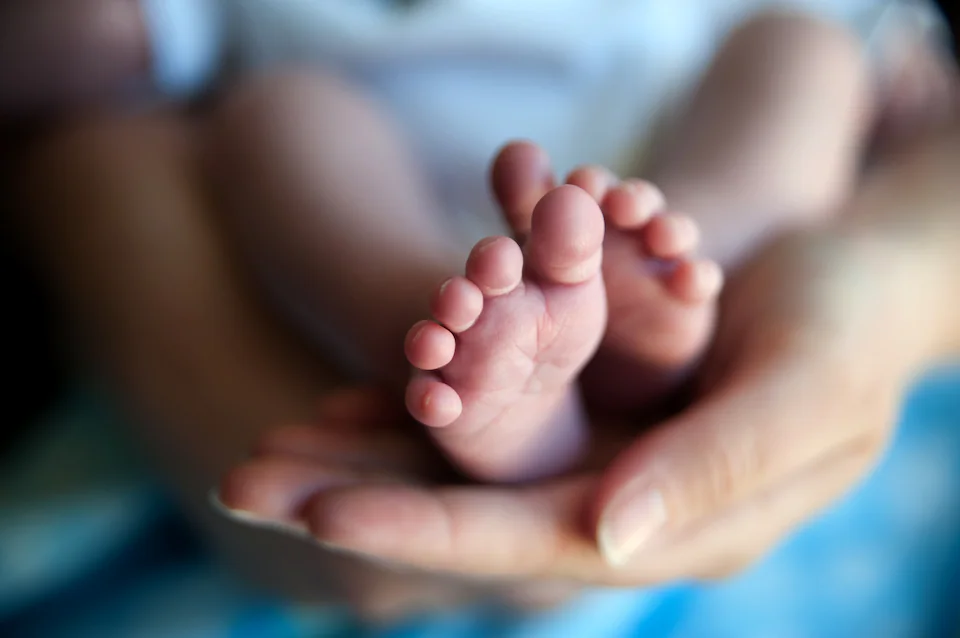A Nation Without Leave: The U.S. vs. the World on Paid Parental Leave

The 2024 United States Presidential campaign appeared to ignite a fresh conversation about American family values. As with a majority of issues in America, there was a significant partisan split over the importance of this topic, with 59% of Trump’s supporters saying they believed society is better if people prioritize marriage and family, as opposed to only 19% of Biden’s supporters expressing this sentiment. One aspect of the topic of the American family was noticeably missing from these conversations: paid parental leave.
The United States’s Family and Medical Leave Act (FMLA) requires employers to guarantee eligible employees up to 12 work weeks of unpaid leave during any 12-month period to care for a new child. The FMLA applies to all public agencies, all public and private elementary and secondary schools, and companies with 50 or more employees. While this law will ensure eligible parents are able to return to their jobs after taking time off to care for a new child, it does not guarantee pay during this time period. The United States is a notable outlier in this area.
A 2023 study of Organisation for Economic Co-operation and Development (OECD) countries, including the United States, found that mothers receive, on average, approximately around 19 weeks of paid maternity leave. The United States is the only country of OECD’s 38 member countries that does not guarantee any paid maternity leave. Significantly, several of the OECD countries guarantee 100% average payment rate for the entirety of maternity leave. These include Austria, which provides 16 fully paid weeks, Mexico, which provides 12 fully paid weeks, and Luxembourg, which provides 20 fully paid weeks. Many other countries offer a reduced average payment rate to workers taking maternity leave, such as Denmark, which guarantees 22 weeks with an average payment rate of 48.2%, and Italy, which guarantees 21.7 weeks with an average payment rate of 80%. Even in Japan, a country notorious for having an intense and unforgiving work culture, working mothers are entitled to 14 weeks of paid maternity leave at a 67% average payment rate.
The two countries with the second- and third-highest gross domestic product (GDP) behind the United States, China and Germany, also guarantee paid maternity leave. In mainland China, a basic maternity leave of 98 days is guaranteed, during which mothers will receive a maternity allowance in lieu of salary so long as the employee has participated in maternity insurance for a certain period of time. Germany guarantees 14 weeks of maternity leave with a 100% average payment rate.
As the United States continues its renewed debate over the importance of family values, it is important that the issue of paid parental leave is part of this conversation. If countries with comparable GDPs, such as China and Germany, and similarly demanding work cultures, like Japan, can prioritize paid parental leave, there seems to be no justification for the United States not doing the same. There cannot be a conversation around the importance of family in America that does not include a push for federally guaranteed paid parental leave.
Article Written by: Mary Kate Tramontano
Sources:
See Lulu Garcia-Navarro, “JD Vance Refuses to Acknowledge Trump’s 2020 Election Loss,” The New York Times Magazine, October 12, 2024, https://www.nytimes.com/2024/10/12/magazine/jd-vance-interview.html.
Pew Research Ctr., Cultural Issues and the 2024 Election, Pew Research, (last visited Jan. 24, 2025), available at https://www.pewresearch.org/politics/2024/06/06/cultural-issues-and-the-2024-election/
Family and Medical Leave Act of 1993, 29 U.S.C. §§ 2601–2654 (2018).
U.S. Dep’t of Labor, Family and Medical Leave Act, (last visited Jan. 25, 2025), available at https://www.dol.gov/general/topic/benefits-leave/fmla.
Pew Research Ctr., U.S. Lacks Mandated Paid Parental Leave, Pew Research, available at https://www.pewresearch.org/short-reads/2019/12/16/u-s-lacks-mandated-paid-parental-leave/ (last visited Jan. 24, 2025).
OECD, Parental Leave Systems, ORG. FOR ECON. CO-OPERATION & DEV., at 3 (2019), https://www.oecd.org/content/dam/oecd/en/data/datasets/family-database/pf2_1_parental_leave_systems.pdf.
OECD, Members and Partners, ORG. FOR ECON. CO-OPERATION & DEV. (last visited Jan. 24, 2025), available at https://www.oecd.org/en/about/members-partners.html.
Jake Adelstein, Karoshi: A Deep Look at Japan’s Unforgiving Working Culture, PULITZER CENTER (Dec. 11, 2019), available at https://pulitzercenter.org/stories/karoshi-deep-look-japans-unforgiving-working-culture (last visited Jan. 24, 2025).
INT’L MONETARY FUND, WORLD ECONOMIC OUTLOOK DATABASE: OCTOBER 2024, (2024), available at https://www.imf.org/en/Publications/WEO/weo-database/2024/October/weo-report c=512,914,612,171,614,311,213,911,314,193,122,912,313,419,513,316,913,124,339,638,514,218,963,616,223,516,918,748,618,624,522,622,156,626,628,228,924,233,632,636,634,238,662,960,423,935,128,611,321,243,248,469,253,642,643,939,734,644,819,172,132,646,648,915,134,652,174,328,258,656,654,336,263,268,532,944,176,534,536,429,433,178,436,136,343,158,439,916,664,826,542,967,443,917,544,941,446,666,668,672,946,137,546,674,676,548,556,678,181,867,682,684,273,868,921,948,943,686,688,518,728,836,558,138,196,278,692,694,962,142,449,564,565,283,853,288,293,566,964,182,359,453,968,922,714,862,135,716,456,722,942,718,724,576,936,961,813,726,199,733,184,524,361,362,364,732,366,144,146,463,528,923,738,578,537,742,866,369,744,186,925,869,746,926,466,112,111,298,927,846,299,582,487,474,754,698,&s=NGDPD,&sy=2022&ey=2029&ssm=0&scsm=1&scc=0&ssd=1&ssc=0&sic=0&sort=country&ds=.&br=1 (last visited Jan. 24, 2025).
China Briefing, Maternity Leave and Payment: A Comparison of Relevant Rules in Mainland China and Hong Kong, CHINA-BRIEFING (Aug. 10, 2023), available at https://www.china-briefing.com/news/maternity-leave-and-payment-a-comparison-of-relevant-rules-in-mainland-china-and-hong-kong/ (last visited Jan. 24, 2025).
